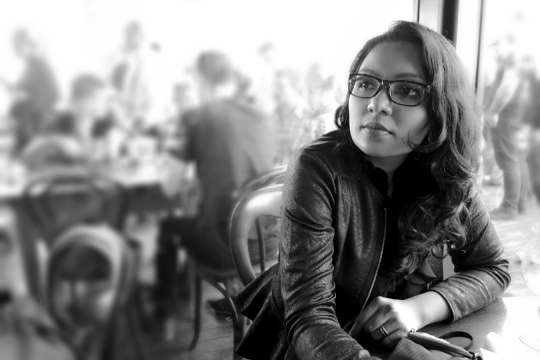Annaliza Bakri is an educator and translator. She believes that literary works can be the subliminal voice that cultivates greater understanding, awareness and consciousness of the past, present and future. An ardent advocate of works that are beautifully penned in Singapore’s national language, she strongly believes in the divine art of translation where shared heritage and mutual discovery promote humanity. Our Editor-At-Large for Singapore, Tse Hao Guang, recently caught up with Annaliza about her work and about the politics of language and literature in Singapore.
Tse Hao Guang (HG): You teach, write papers, translate Malay texts into English, and organise programmes and panels on Malay culture, language and heritage. What is the driving force behind all this work? What first got you interested in this? You seem to be one of a few people here doing what I’d call literary activism.
Annaliza Barki (AB): There’s a lot of commitment and responsibility when you call yourself an activist. I don’t think it’s as much about activism as it is about sharing ideas and knowledge. In class, I use literature to teach the Malay language. Grammar and syntax can make for a dry learning experience. With literature, however, you examine ideas, explore culture, and enrich your worldview. Literature reveals intricacies of the human identity to us, and, I believe, reignites in us a flame of humanity. This is also one of the many reasons why I translate literary works. What I gain from the interweaving of cultures in my translation work allows me to better understand humanity and human predicaments.
I was part of the organising team that initiated the cultural-literary seminar series CITA@The Arts House in 2012. We provided a platform for the sharing of Malay culture, in both English and Malay, to both adults and students. Part of CITA involved inviting our older writers to speak about their work, writers who were active in the 1970s and still continue to write today. The kind of honour and gratitude we have for them made younger people curious to attend and listen, as it had been a while since we last heard from them. It was interesting for me too, as a teacher who had read and even taught their books, but had no idea who they were apart from their role as writers, or what their aspirations were. Beyond giving these writers prizes like the Cultural Medallion or the Tun Sri Lanang, I think we, as a nation, honour them by giving them a chance to engage an audience in person once again.



